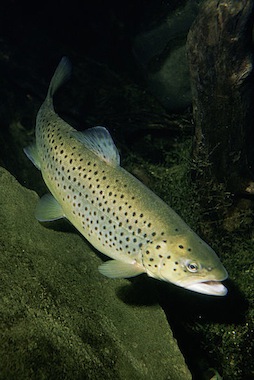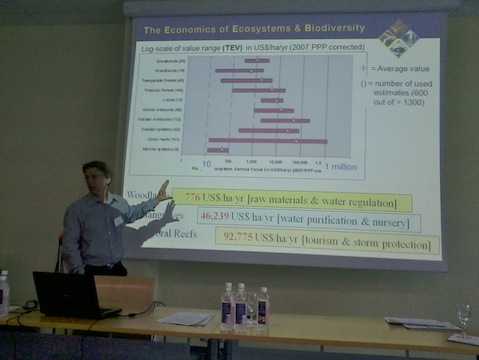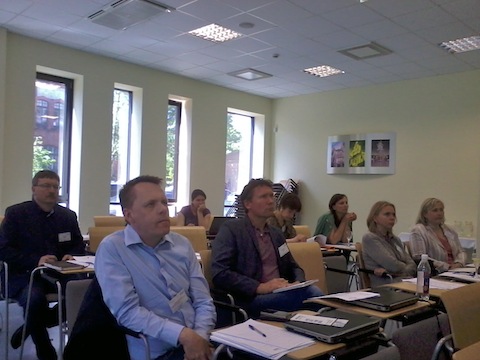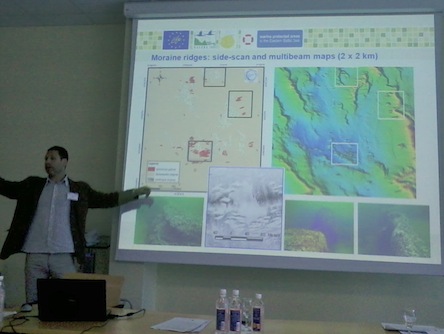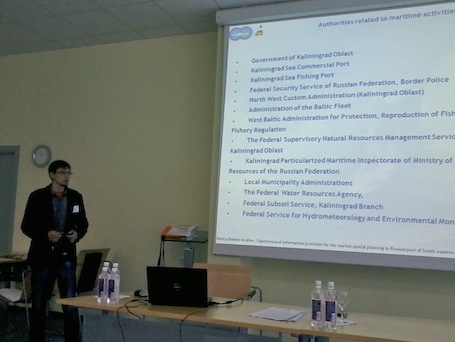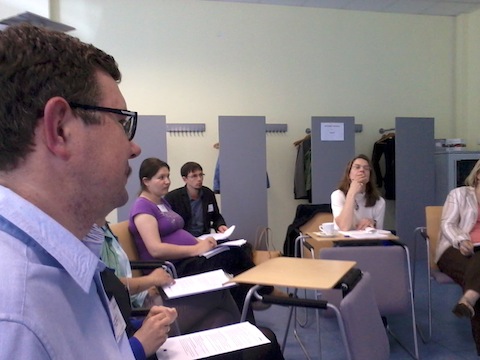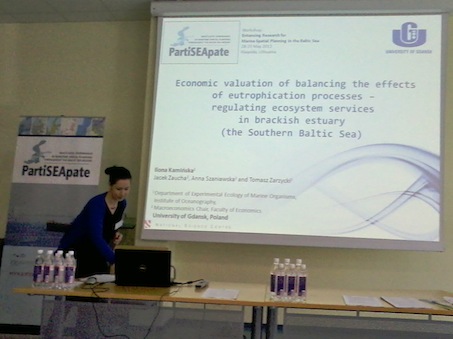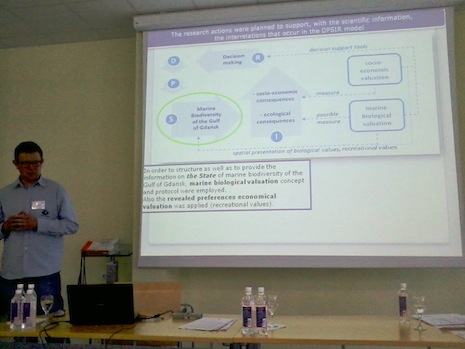Workshop: Enhancing Research for Marine Spatial Planning in the Baltic Sea
The workshop brought together experts and scientists (planners, social scientists and environmental economists) from the Baltic Sea Region and abroad with the aims of: 1) Sharing and discussing with experts from different fields the findings on scientific research related to the two thematic blocks; 2) Addressing implementation needs for the ecosystem based approach and the integration of socio-economic valuation techniques as indicators of human well-being into Marine Spatial Planning; and 3) Producing conclusions that identify research priorities and needs that can aid Marine Spatial Planning in the Baltic Sea.
Date: 28-29 May 2013
Location: Klaipėda, Lithuania
Venue: Klaipeda University
Host: Coastal Research and Planning Institute (CORPI)
Contact: Daniel Depellegrin (+370 655 20 680)
Downloads: Agenda, Discussion points, Summary report of the workshop
Background:
- Sustainability policies such as the EU Marine Strategy Framework Directive (MSFD) require knowledge-based solutions to achieve sustainability objectives and good environmental status of the Baltic Sea.
- Although the MSFD asks for an ecosystem based approach that supports the understanding of marine habitat productivity, functioning and connectivity, the linkage to sustain human well-being is still an insufficiently addressed issue.
- The ecosystem based approach includes guiding ecological principles for the sustainable management of the marine environment and although several tools exist to aid planning, its implementation is still a challenging task.
- The increasing demand for marine goods and services provided by marine ecosystems stresses the need for new tools in Marine Spatial Planning that are capable of assessing ecological processes and resources in terms of the goods and services they provide and that translate the complexity of the environment into a series of functions which can be more readily understood by policy makers and non-scientists (Beaumont et al., 2007).
- This dedicated workshop calls for interdisciplinary research in Marine Spatial Planning. Experts from the Baltic Sea Region and abroad will provide insights on the most recent findings in relation to ecosystem based approaches for MSP and on the application of socio-economic valuation of ecosystem goods and services as indicators for human well-being as a supportive tool for the planning of the sea space.
Presentations:
- Introduction to PartiSEApate and principles of MSP – N. Blažauskas, CORPI (Lithuania)
- Socio-economic evaluation of ecosystem services for MSP and management of MPA – D. de Groot, Wageningen University, Ecosystem Service Partnership, IUCN (The Netherlands)
- Ecosystem based approach: Experience from PreHab and MARMONI Project - M. Isaeus, Aquabiota (Sweden)
- Spatial and temporal variability of marine life: importance for understanding of ecosystem spatial organisation - D. Daunys, CORPI (Lithuania), DENOFLIT Project
- Experience of information provision for the marine spatial planning in Russian part of South-eastern Baltic - D. Domnin, Atlantic Branch of P.P.Shirshov Institute of Oceanology of Russian Academy of Sciences (Russia)
- MSP in Norway: The research base of the management plans – G. van der Meeren, Institute of Marine Research (Norway)
- Ecological and socio-economic valuation of marine biodiversity in the Gulf of Gdansk – T. Zarzycki, University of Gdansk (Poland)
- Working group 1: Ecosystem based approach in MSP (Moderated by S. Olenin, CORPI)
- Working group 2: Integration of Socio – economic valuation of ES for MSP (Moderated by D. de Groot, Wageningen University)
- Economic valuation of mitigation of euthrophication – regulating ecosystem service in brackish estuary (The Southern Baltic Sea) - I. Kaminska, University of Gdansk (Poland)
- Coherence between marine and land use planning policies: people’s views of landscapes in placing a wind park along the Latvian coast of the Baltic Sea - K. Veidemane, Baltic Environmental Forum (Latvia)

